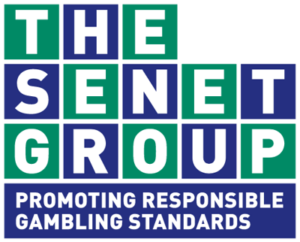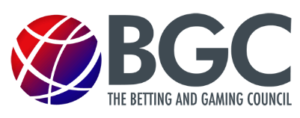 If you know much about the history of gambling in the United Kingdom, it is entirely possible that you will have heard of the Senet Group. Of course, not everyone is all that clued up on the past when it comes to betting in the UK, so you’d be forgiven for having no clue who or what the Senet Group is or was.
If you know much about the history of gambling in the United Kingdom, it is entirely possible that you will have heard of the Senet Group. Of course, not everyone is all that clued up on the past when it comes to betting in the UK, so you’d be forgiven for having no clue who or what the Senet Group is or was.
The independent regulatory group was established in 2014 with the aim of promoting responsible gambling in the United Kingdom, as well as responsible marketing from gambling organisations. It was set up by Ladbrokes, Coral, William Hill and Paddy Power.
Deriving its name from an ancient Egyptian game of chance called Senet, the name was somewhat ironic when you consider that the group’s aim was to eliminate problem gambling and the allure of chance as a factor in betting.
Over the years since, the various responsibilities of the group have been changed and altered, meaning that it is no longer the same organisation that it once was. Instead, a lot of the things that the Senet Group previous did, such as boast a safer gambling remit, are now the responsibility of the likes of the Betting and Gaming Council.
The Formation Of The Senet Group
 In 2014, representatives from four of the country’s biggest bookmakers got together in order to discuss a growing concern amongst British citizens about the gambling industry. The four companies were Paddy Power, Ladbrokes, Coral and William Hill.
In 2014, representatives from four of the country’s biggest bookmakers got together in order to discuss a growing concern amongst British citizens about the gambling industry. The four companies were Paddy Power, Ladbrokes, Coral and William Hill.
One of the big concerns at the time was the advertising that betting companies were using in order to attract customers, as well as the seeming lack of standards when it came to what the adverts concerned. At the time, there was a sense that gambling problems were becoming rife amongst the British public, which was an issue.
The reality of the situation for the betting companies was that there was a fear that the government would intervene if the industry didn’t make moves to curb its own appetites.
As a result, the ‘Big Four’ decided to take matters into their own hands and do something to stop any form of government intervention that would almost certainly lead to far more interference than they would be happy with. They took on the responsibility of developing a self-regulatory framework for both leading operators and suppliers, in addition to advertising curbs that would be easy to follow.
The First Big Campaign
 One of the main responsibilities taken on by the Senet Group was to launch a Multi-Operator Self-Exclusion Scheme, which was named M.O.S.E.S. The idea was formed not long after the creation of the Senet Group, but it didn’t get to be put into practice until 2016.
One of the main responsibilities taken on by the Senet Group was to launch a Multi-Operator Self-Exclusion Scheme, which was named M.O.S.E.S. The idea was formed not long after the creation of the Senet Group, but it didn’t get to be put into practice until 2016.
A free service for any user looking to control their gambling habits, M.O.S.E.S. allowed punters to self-exclude from land-based bookmakers up and down the country. It is still working today and in order to benefit from it customers simply call the team and tell them the sorts of areas where they visit and are likely to place bets.
A mapping tool is then used to identify the various areas where you might visit, with the customer’s photographic identification then forwarded to those shops.
This allows the bookmakers to stop people from being able to place bets with them, should they be able to recognise them from the photo that they’ve sent in. The excluding will be in place for 12 months, with a 24-hour cooling off period in place for those that choose to resume their betting in shops once the year is up. That idea was put in place by the Senet Group in an attempt to protect gamblers.
When The Fun Stops, Stop
Another campaign that was the brainchild of the Senet Group was the ‘When the fun stops, stop’ slogan that appeared on gambling adverts. Introduced in 2015, the hope was that the message would encourage a more sensible approach to betting and gambling from people, asking them to pause and think about what they were doing with their money.
It aimed to generate a substantial awareness between negative emotional states and those that developed gambling problems. It was seen as a hugely important and influential campaign at the time that it was first launched.
Unfortunately, in the years that followed it was established that it was, in fact, not effective. Researchers from Warwick University monitored the decisions made by 506 participants that were asked to place bets after seeing online betting adverts.
The experiment was designed so as to be able to see how those that saw the ‘When the fun stops, stop’ campaign acted versus those that didn’t see it. It was concluded that there was ‘no statistically significant difference’ between how likely the participants were to place bets when the warning was shown compared to when it wasn’t.
Responsibilities Handed Over To BGC
 In April 2020, the Betting and Gaming Council confirmed that it had taken over the lion’s share of responsibilities from the Senet Group. The BGC had not long been established as the standards body for the industry when the changeover happened, offering a further sign that the BGC was committed to drive changes across the industry.
In April 2020, the Betting and Gaming Council confirmed that it had taken over the lion’s share of responsibilities from the Senet Group. The BGC had not long been established as the standards body for the industry when the changeover happened, offering a further sign that the BGC was committed to drive changes across the industry.
With membership including betting shops, gaming and casino sites as well as online betting, the Betting and Gaming Council makes up about 90% of gambling industry representatives. Whilst more than just the original four companies joined the Senet Group over the years, it is a massive improvement.
The BGC was responsible for the whistle-to-whistle ban on gambling adverts during live sport, for example. Though the newly formed organisation took over most of the Senet Group’s previous responsibilities, M.O.S.E.S. continued to operate as an independent organisation. Michael Dugher, the Chief Executive Officer of the BGC, said,
“The Senet Group leaves a rich legacy of accomplishments; it showed that the industry was serious about working together to raise safer gambling standards and the Senet team can be rightly proud of their achievements.”